You can write your way out
So don't throw away your shot
👋 Hey, it’s Andrés. Welcome to Astrolab’s weekly newsletter on how to become a better communicator at work. We write for knowledge workers and business owners.
Today: Why your ability to influence others is crucial for success. Lessons from Hamilton, the musical
Read time: 12 minutes
(A big hello to INFLUYE subscribers 👋🏽. I decided to choose quality over quantity, so now I’ll send only one weekly newsletter: this one)
Here are my three ideas for today:
Hamilton is a story about influence
Don’t wait for it
Write your way out
Do you have your ☕ in hand? Let’s do this!
Hamilton is a story about influence
This past Thursday I saw the Hamilton musical live for the first time. The show is doing a tour in Philadelphia, and our kids’ school organized a family night trip.
It was an amazing experience, and I had the opportunity to share it with my family.
I’ve been listening to Hamilton on Spotify since 2016, and still got emotional and pumped up many times while watching the show.
I remember when I first heard about Hamilton. I attended a friend's wedding and found myself seated next to Diego, a theater producer. At some point during the evening, I asked him about his recent trip to New York.
I tried to see Hamilton, but I couldn’t get tickets, he said.
Hamilton?
The musical.
He explained that a Broadway production about Alexander Hamilton, the first U.S. Secretary of the Treasury, had premiered in the summer of 2015, and since then had become a cultural milestone.
Diego again:
The actors are Black, Latino, and Asian, and the music is all rap and hip-hop. It’s insane—it’s a phenomenon. Tickets are sold out for months. You should start by watching Lin-Manuel Miranda perform a song from it at the White House for Obama—six years before the musical hit Broadway.
Musicals weren’t my thing, but curiosity led me to watch Lin-Manuel Miranda’s visit to the White House.
Here’s Miranda in 2009. The bold is mine:
It’s a concept album about the life of someone I think embodies hip-hop, Treasure Secretary, Alexander Hamilton, [which got far] all in the strength of his writing. I think he embodies the world’s ability to make a difference.
Spotify’s recap of my most-listened-to songs of 2016 told its own story. Alexander Hamilton, the musical’s opening number, was my third most-played track. Aaron Burr, Sir landed at seventh, and My Shot ranked fourteenth.
That trend has continued up to today.
But why? Why has Hamilton moved me so deeply? What is it about a rap and hip-hop musical—genres I’d barely paid attention to—that’s left such an indelible mark?
Also, why write about Alexander Hamilton in a newsletter about influence?
Here’s why: because learning how to become influential was his path to success.
Let’s unpack this.
Don’t wait for it
Hamilton’s antagonist is Aaron Burr, Hamilton’s first friend when he arrives to the US from the Caribbean.
Since the beginning of the show, Burr and Hamilton share their contrasting views on being proactive.
Burr suggests Hamilton to talk less and smile more. He constantly talks about how he prefers to wait for it, and to keep his plans close to his chest.
Simultaneously, Burr is puzzled by Hamilton’s desire to share his thoughts:
Why do you always say what you believe?
Eventually, Hamilton’s rise starts to get into Burr’s nerves:
Hamilton doesn't hesitate, he exhibits no restraint... he keeps winning anyway, he changes the game, plays and he raises the stakes.
Hamilton, on the other side, is surprised about Burr’s attitude. He introduces himself to the crowd and to his new friends as someone who’s a diamond in the rough, who’s trying to holler just to be heard, and who wants to prove his worth, actually writing to a friend I wish there was a war, in the year 1769:
So Hamilton will definitely not throw away his shot:
Give me a position, show me where the ammunition is
… Oh, am I talkin' too loud?
Sometimes I get over excited, shoot off at the mouth
I never had a group of friends before
I promise that I'll make y'all proud
To which John Laurens respond:
Let's get this guy in front of a crowd.
Which, by the way, is one of my favorite lines of the show. Since then, I’ve closed 100% of the INSPIRA’s I facilitated sharing this line, and adding the following:
You can become the person who others want in front of a crowd, a sales pitch or a conference room.
This dynamic between Burr and Hamilton continues through the whole show, and even leads to the show’s conclusion: a duel between both of them. Won’t spoil what happens next 👀
Story aside, Hamilton’s motto is to don’t wait for it. He wants to be in the room where things happen, and constantly rises to the challenges thrown at him.
And what’s his favorite tool? Speaking his mind out.
Write your way out
Lin-Manuel Miranda has often said he relates to Hamilton because both owe their success to the power of words.
In the song Hurricane, Hamilton reflects on his life and the central role of writing in achieving his goals:
I wrote my way out of hell
I wrote my way to revolution
I was louder than the crack in the bell
I wrote Eliza love letters until she fell
I wrote about The Constitution and defended it well
And in the face of ignorance and resistance
I wrote financial systems into existence
And when my prayers to God were met with indifference
I picked up a pen, I wrote my own deliverance.
Miranda spent seven years writing Hamilton, a testament to the discipline and care he poured into this project—his shot.
I’m going to get a little bit personal. Deep down, I think that Hamilton resonates with me because I can relate to his message. When I think about the career pivot I made from corporate lawyer to corporate trainer, I see how words have been a cornerstone of my journey.
Through blog posts we started publishing many years ago, and countless conversations about our vision, we’ve reached prospects, clients, and friends. This allowed me to dedicate myself fully to this work, supporting not only my family but others as well.
Now, forget about writing, cabinet battles and printing retractions in the press. Think about the following communication moments. How would you rate yourself in each of them?
You career, your work and your impact will advance and grow—or not— if you master these moments. Here is where you need to win others over. Here is where you fan your spark into a flame.
Can you get better in some or in all of these?
That’s what INFLUX 🪐 , and INSPIRA—our storytelling for influence workshop— are about.
Tool: What, So What, Now What
Since last month we started including one tool every INFLUYE delivery. I’ll add that practice to INFLUX 🪐.
The first tool we’ll cover is What, So What, Then What, a framework coined in 1970 by Terry Borton, an American school teacher.
What, So What, Then What helps you present your arguments effectively. Here’s how to apply it:
What? Clearly define the main topic or piece of information. For example: It’s important to argue effectively to build trust in your message.
So What? Explain why it matters or what the impact is. For example: Building trust helps you become more influential, which allows you to establish better agreements with your audience.
Now What? Outline concrete steps to take. For example: That’s why I encourage you to first listen, clarify the scope of your response, and structure your arguments for your next conversation.
To go back to Hamilton, there are least two songs in the show that are structured like this. The first one is One Last Time, where George Washington makes a farewell speech:
What? Washington announces that he will step down as President and not seek a third term: One last time, the people will hear from me one last time...
So What? He explains the importance of this decision for establishing a precedent of peaceful transfer of power, ensuring that the presidency is not seen as a lifetime position: If I say goodbye, the nation learns to move on. It outlives me when I’m gone.
Now What? He calls on Hamilton to help him write his farewell address, emphasizing the steps that the country must take to preserve democracy: I need you to draft an address... we’re gonna teach them how to say goodbye.
The song Hurricane also exemplifies What, So What, Now What:
What? Hamilton recounts the pivotal events of his life, such as the hurricane that devastated his town and his mother's death.
So What? He reflects on how these experiences shaped his resilience and determination, leading him to write his way out of challenging circumstances.
Now What? Hamilton decides to take control of his narrative by writing the Reynolds Pamphlet, aiming to protect his legacy despite the personal cost.
I hope this gives you enough self-confidence to start trying this tool at work!
That’s all for today. I’ll see you next Thursday!
Andrés
Ps. INFLUYE subscribers: share your thoughts with me about reading this in English


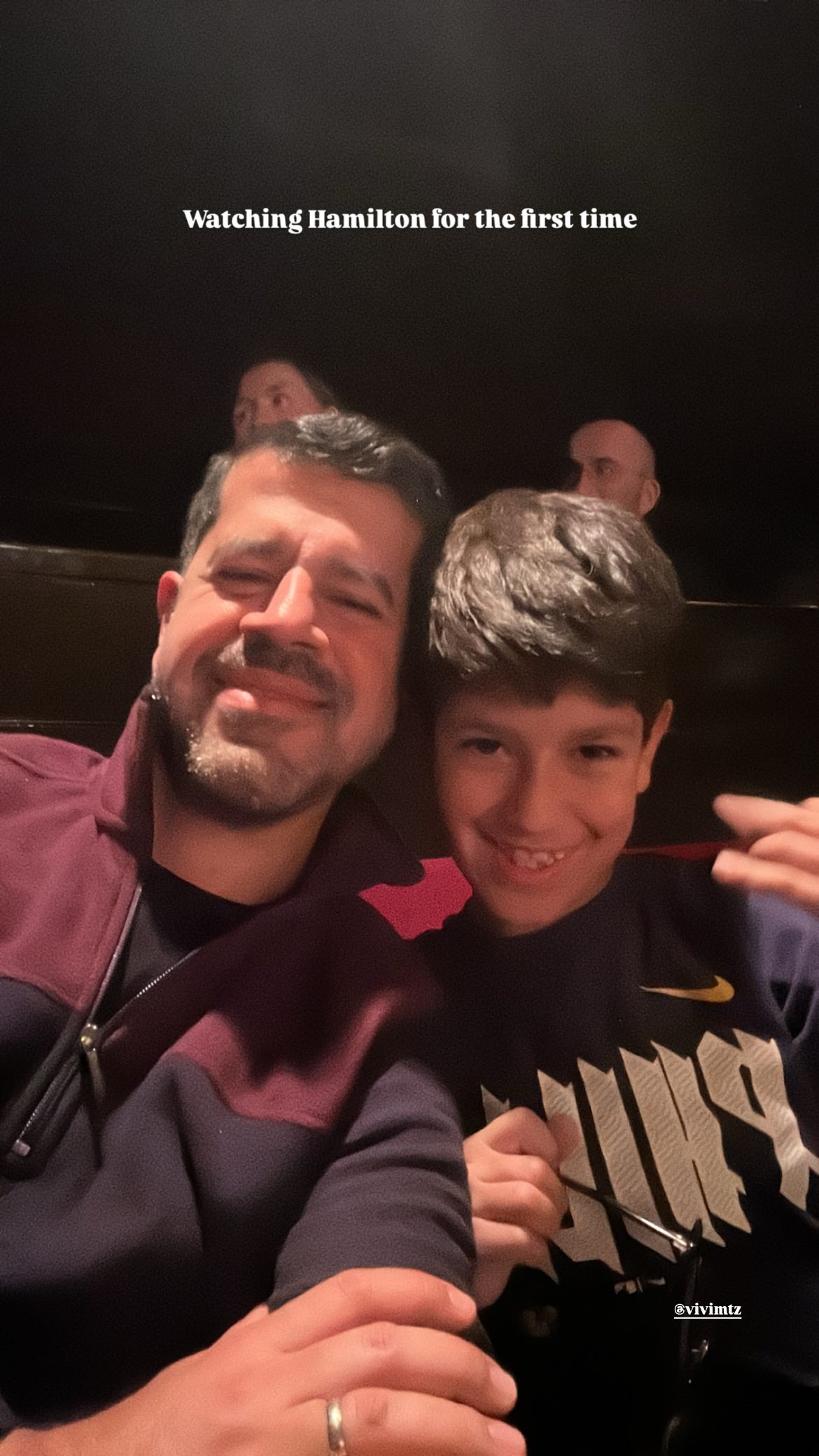
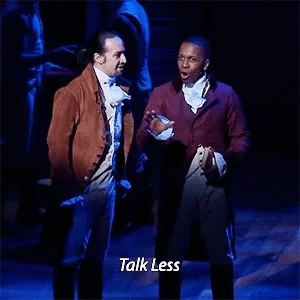
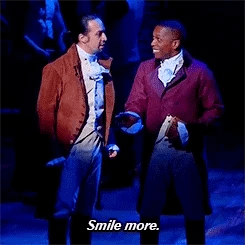

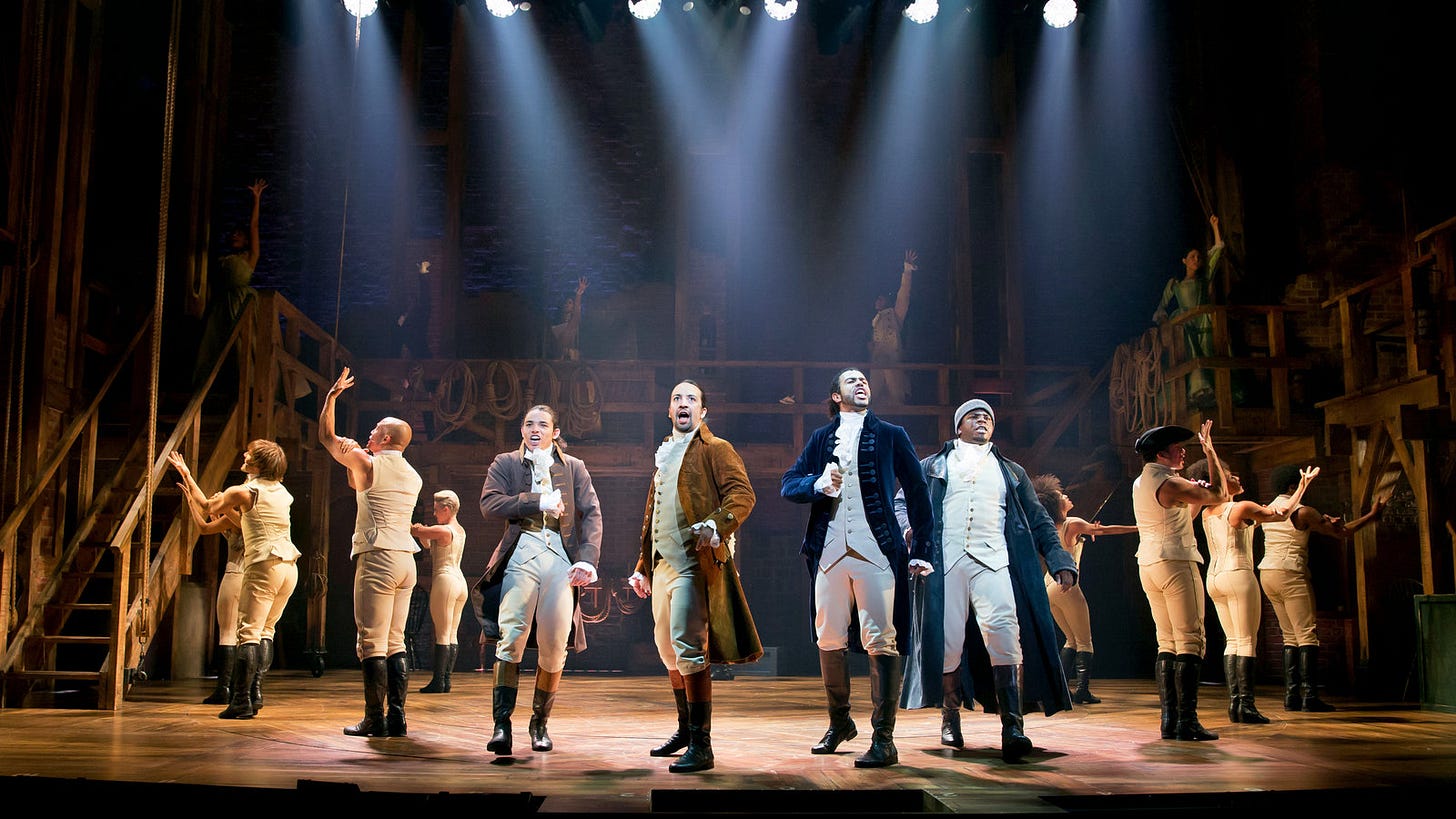
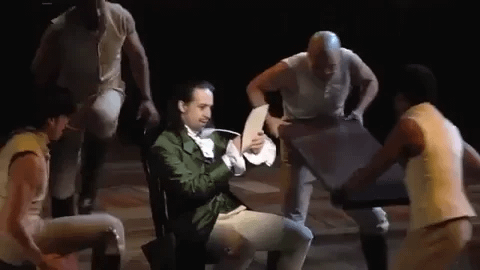
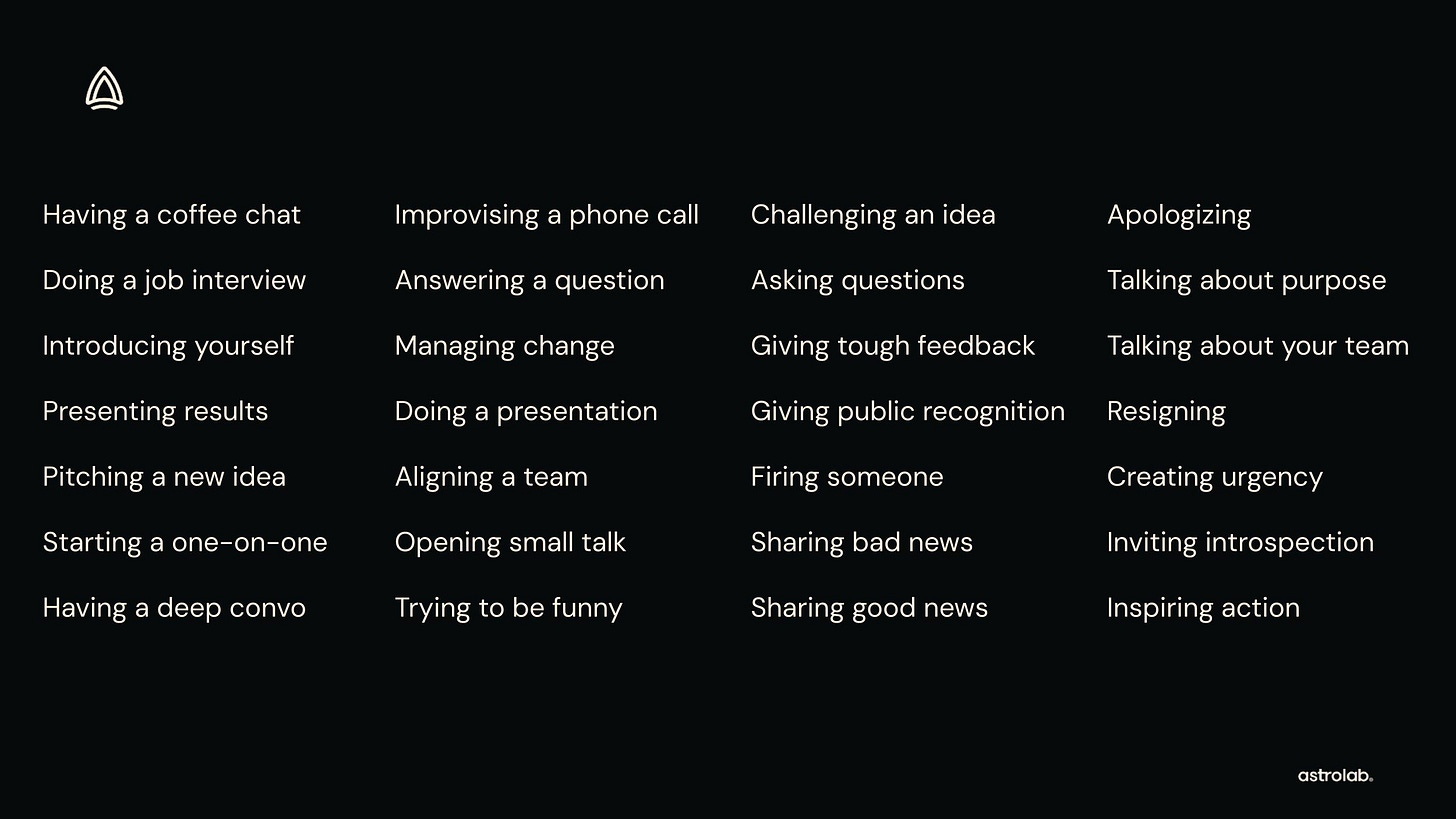
Thanks for sharing, Andrés! HAMILTON hit me hard the first time I listened to it. This image keeps coming back every once in a while: "Put a pencil to his temple, connected it to his brain". The power of words, language, and communication can truly move mountains.